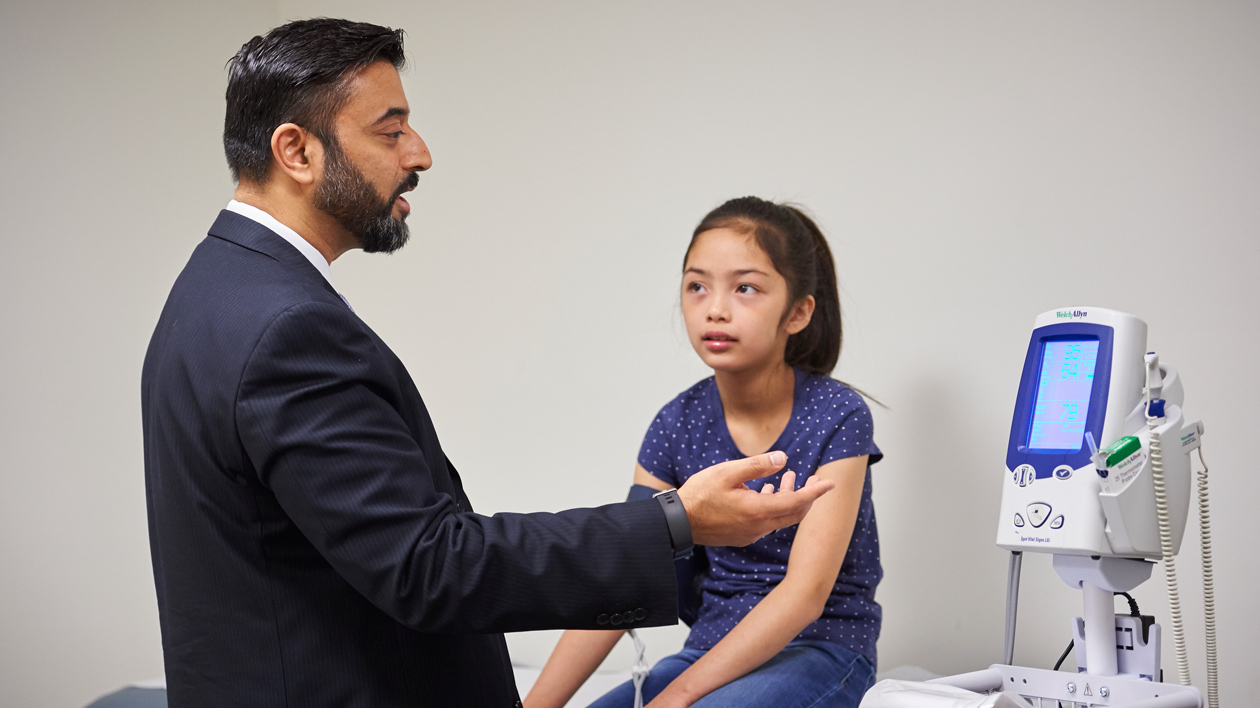Main content
We use cookies and similar tools to give you the best website experience. By using our site, you accept our Websites Privacy Policy.
Medication can be an important and sometimes critical component of treating anxiety disorders in children and adolescents. Many children and teens with anxiety disorders find cognitive behavioral therapy, medication, or a combination of the two to be helpful for overcoming anxiety. Younger children tend to respond well to behavioral therapy alone, whereas older children and adolescents may see the best results from a combination of medication and behavioral therapy.
Psychiatrists at the Child Study Center, part of Hassenfeld Children’s Hospital at NYU Langone, offer a medication consultation, in which you meet with them to discuss this treatment option. During the appointment, they can address any questions or concerns you may have. Our specialists are experts in matching the right medication to your child’s needs.
The most common type of medication used for treating anxiety disorders in children and adolescents is a class of antidepressants called selective serotonin reuptake inhibitors. They work by raising levels of a brain chemical known as serotonin. This enables brain chemicals to communicate better, helping to improve mood and reduce anxiety. These medications include sertraline, paroxetine, and citalopram. Side effects include insomnia, anxiety, nausea, and diarrhea.
A doctor may also prescribe an anti-anxiety medication, such as alprazolam or clonazepam, for children and teens with anxiety that prevents them from attending school or performing everyday activities. An anti-anxiety medication calms the central nervous system and provides short-term relief. Side effects include fatigue and dizziness.

For teens with specific anxieties, like public speaking or social phobia, a doctor may prescribe a blood pressure medication called a beta blocker to alleviate the physical symptoms, such as shaking, heart palpitations, and sweating. These medications are taken on an as-needed basis, and side effects may include cold hands, headaches, upset stomach, and constipation.
After your child starts taking his or her medication, our psychiatrists meet with you and your child on a regular basis to adjust the dosage to minimize side effects and ensure that it is providing symptom relief. Meetings usually begin on a bi-weekly basis, then may stretch to a month or longer between visits.
Medication can be a short- or long-term treatment option, depending on your child’s response to it and whether anxiety symptoms persist. Our doctors recommend that an antidepressant be used for about one year. Some children are able to eventually taper their dose until they no longer need the medication. Our doctors monitor the tapering process through regular follow-up visits.
We can help you find a Hassenfeld Children’s Hospital doctor.
Call 646-929-7970
or
browse our specialists.